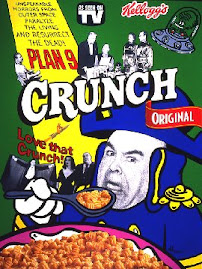An excellent horror film to watch for Halloween season that more casual genre fans may not be familiar with is Warner Bros' 1936 chiller, "The Walking Dead," starring Boris Karloff. It was helmed by famed Hungarian director Michael Curtiz. Other chief cast members include Ricardo Cortez, Edmund Gwenn, Marguerite Churchill and Warren Hull.
There are no mindless zombies consuming human flesh in the lean mean 60-plus minute film. Karloff plays a down-on-his-luck musician ex-con in bad need of a job. He spent time in prison after being sentenced harshly by a stern judge.
This stern judge has just sentenced a corrupt politician to 10 years in prison. Gangsters who control most of the crime in the city have decided the judge needs to be murdered. Since Elmann was sentenced by the judge they want to kill him. The gangsters set Elmann up to take the fall for the judge's murder. Elmann is in a car with one of the gangster when the judge is murdered. He's there thinking he'll get a job, but he winds up charged with the murder.
Ellman's lawyer turns out to be a Mr, Nolan (Cortez) who is part of the criminal gang. Cortez gives a feeble effort at trial, resulting in Elmann's conviction and death sentence.
Ellman claimed during trial that a man and a woman were at the scene the night of the murder and can be his alibi that he did not kill the judge. That's true. They are Nancy (Churchill) and Jimmy (Hull). They work as medical assistants to Dr. Evan Beaumont (Gwenn), who is working on efforts to revive the dead. Threatened by gangsters the night the judge was murdered, Nancy and Jimmy attend the trial, but rather disgracefully never corroborate Ellman's claims.
Just before his appointed time of the execution, the pair finally reveal what they know to lawyer Nolan. However, he intentionally slowwalks getting the information to authorities and Elmann is executed.
At this point, Dr. Beaumont requests that he be allowed to try go revive Elmann's body, restoring life. Through a type of electricity procedure and a mechanized "heart," Elmann is revived. This is not done in secret. The resuscitation is big news as is the late-breaking news that Ellman is innocent. In fact, Nolan procures a $500,000 settlement for Elmann.
Karloff's Ellman is very weak and still being treated. However, he expresses disgust and anger when he sees Nolan, ordering him out of the hospital. At a larger gathering, Karloff displays disgust at Elmann's accomplices, all of whom are gang members, including the actual killer. This prompts the district attorney, (Henry O'Neill) to lay groundwork to investigate Nolan and his confederates.
At this point Karloff begins to make nocturnal visits to the gangsters, escaping the hospital. He is clearly getting weaker, and his hair has white streaks in it. He comes as a type of avenging angel, asking each gangster why they did what they did, telling them they cannot avoid responsibility.
The gangsters' reactions are a mixture of fear and panic. Most seem unable to actually shoot the unarmed Ellman, and they eventually die through a panicked accident while backing up, or through a heart attack.
Nolan and the remaining gangsters eventually try to kill off Karloff. There is a satisfatory conclusion, set in large part at a cemetery that Elmann feels comfortable in.
This film has supernatural elements. It's strongly hinted that Karloff learned who the guilty persons were in death, during the period before he returned to life. Karloff gives a strong, understated performance, of a man full of outrage but not intending to kill his past tormenters. In fact, Elmann looks perplexed and concerned when he sees his tormenters' panicked, surprising deaths.
Cortez is an excellent actor, who was a big star then. His resume includes an early series of Perry Mason films. Gwenn, who gained iconic fame as Kris Kingle in "Miracle on 34th Street," plays a kindly "mad doctor" well. Churchill was very good in "Dracula's Daughter" but both she and Hull are kind of bland in this movie.
Curtiz's direction is strong. He moves the plot smoothly and keeps the horror from going over the top. There's no need to be gory. The creepy parts, the ones viewers remember, are the scenes of a forbidding, aging Karloff walking slowly to those who betrayed him, and observing the antagonists' panicked reactions.
This was Curtiz's third and final Warner Bros' horror film. Others were "Mystery of the Wax Museum" and "Doctor X," both superb pre-code films. "The Walking Dead" is early non-precode, and I suspect a lot of explicit scenes were cut. But I think in this case, a more subtle touch likely improved the film. Its success was solely in Karloff's hands, and he delivers a great performance.
- Doug Gibson
I want to give cult film expert Buddy Barnett credit for this paragraph. Interested persons can read a (short) "novelization" of "The Walking Dead" in the June 1936 edition of Movie Action Magazine. It's a fascinating time-capsule read. The link is here at the Internet Archive. You have to scroll to that month's issue.





No comments:
Post a Comment